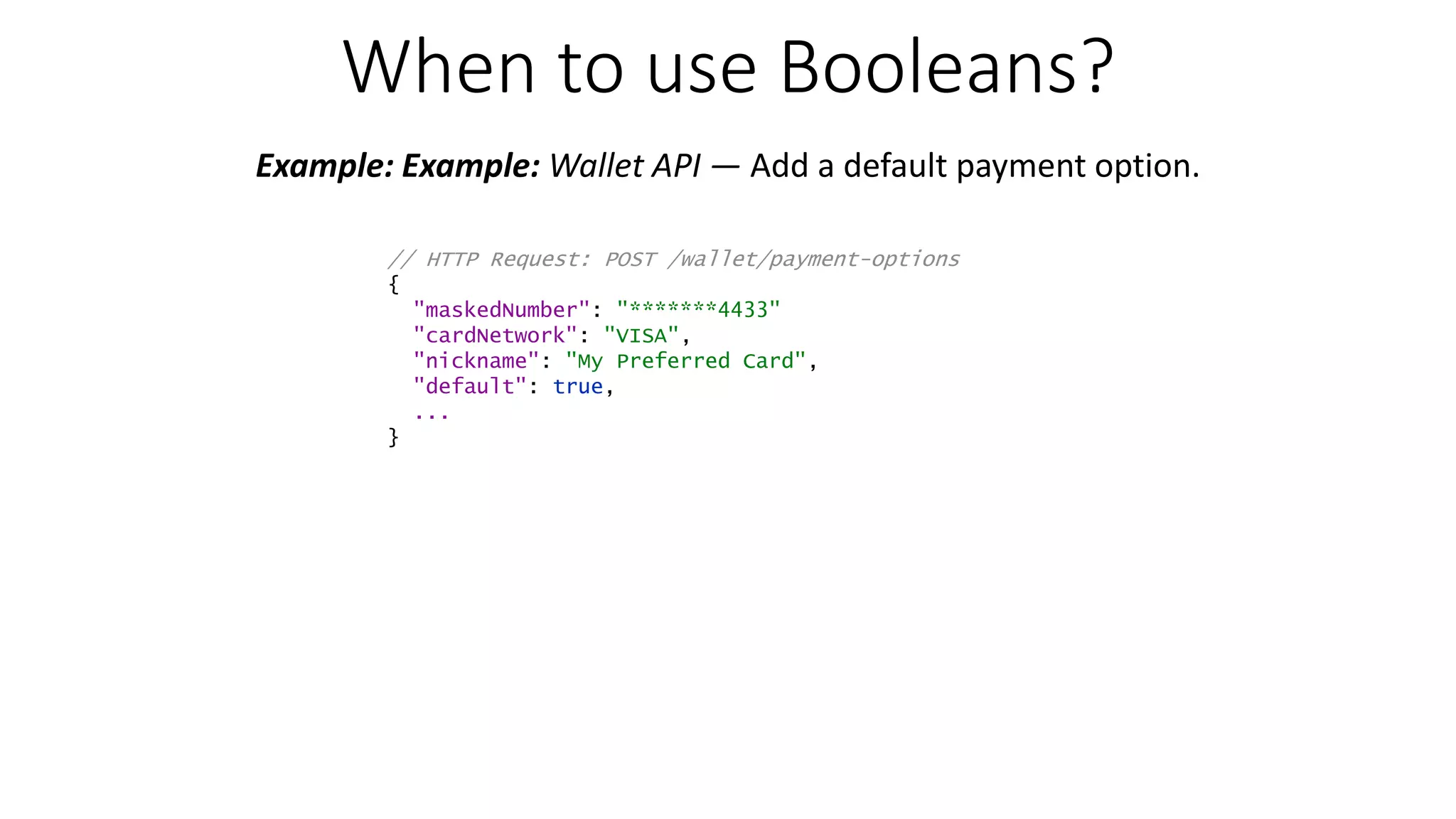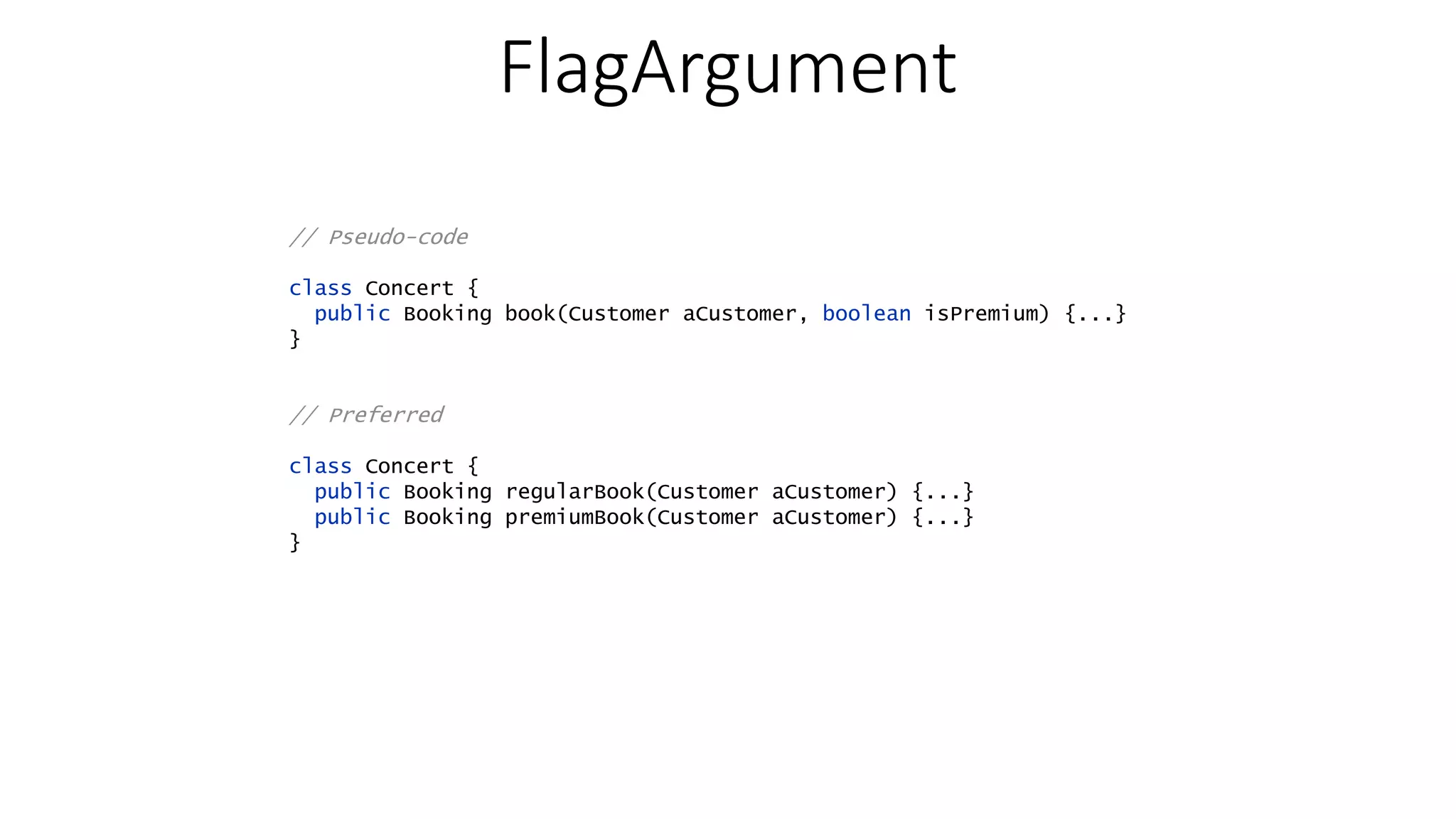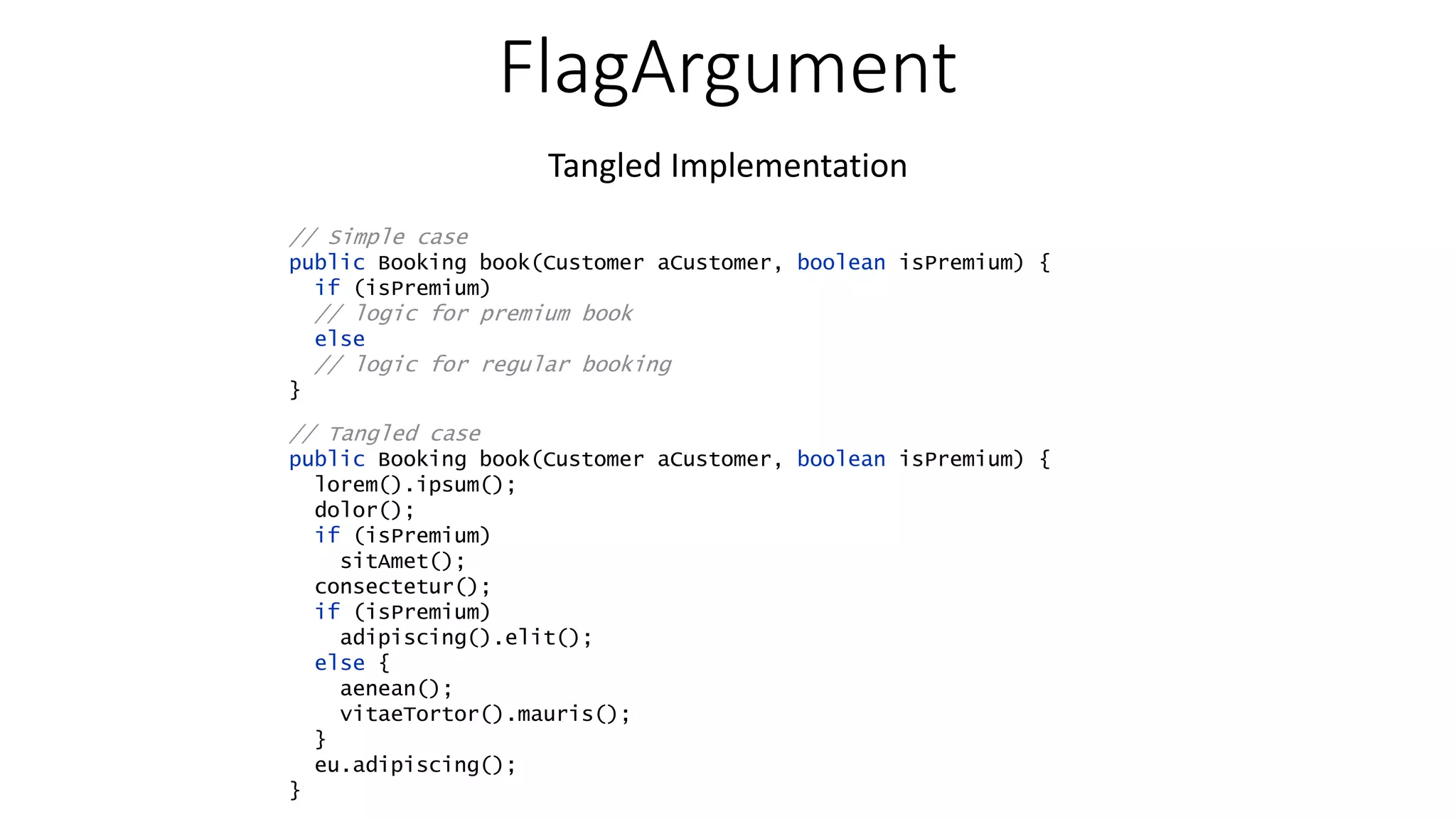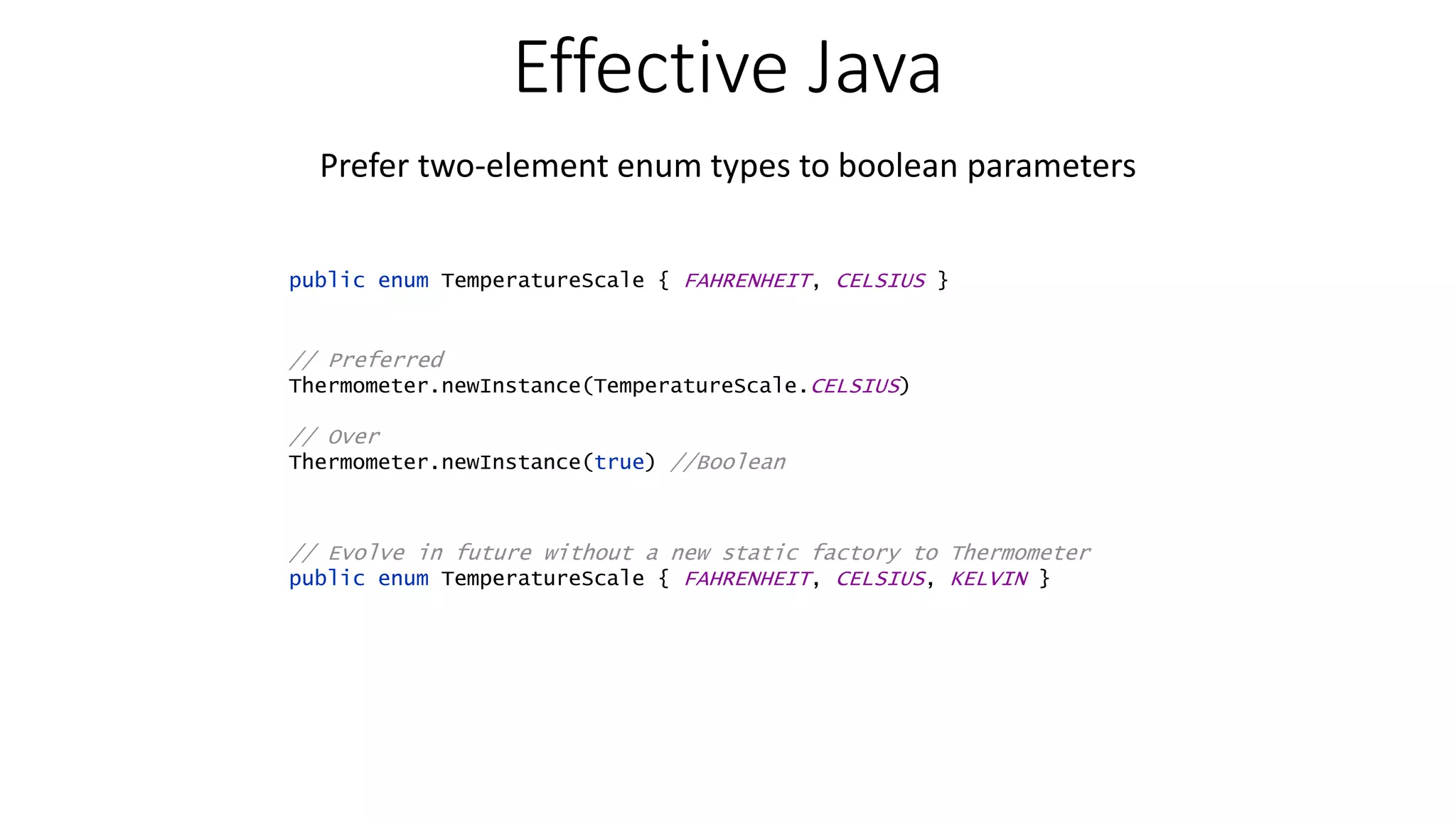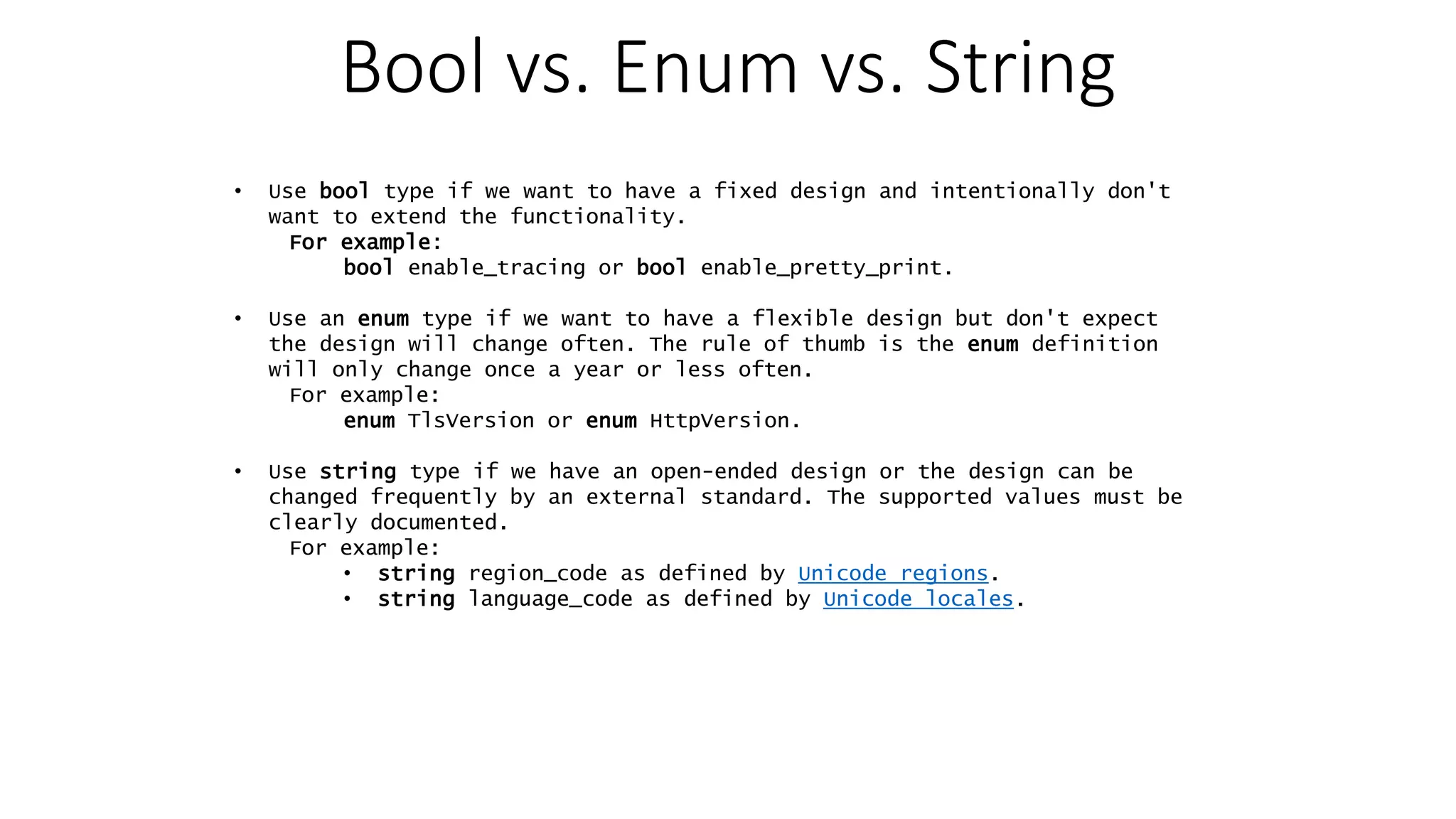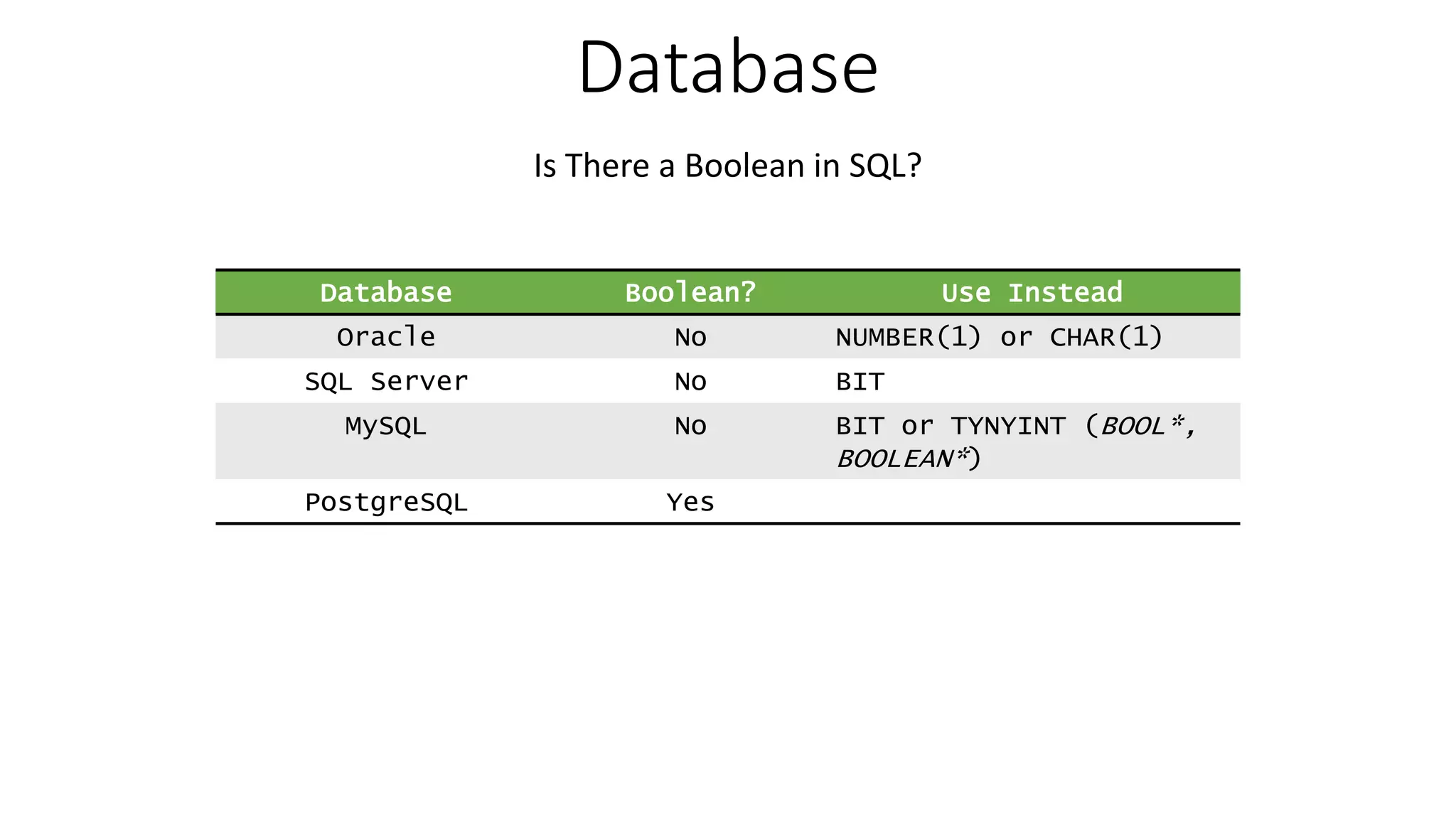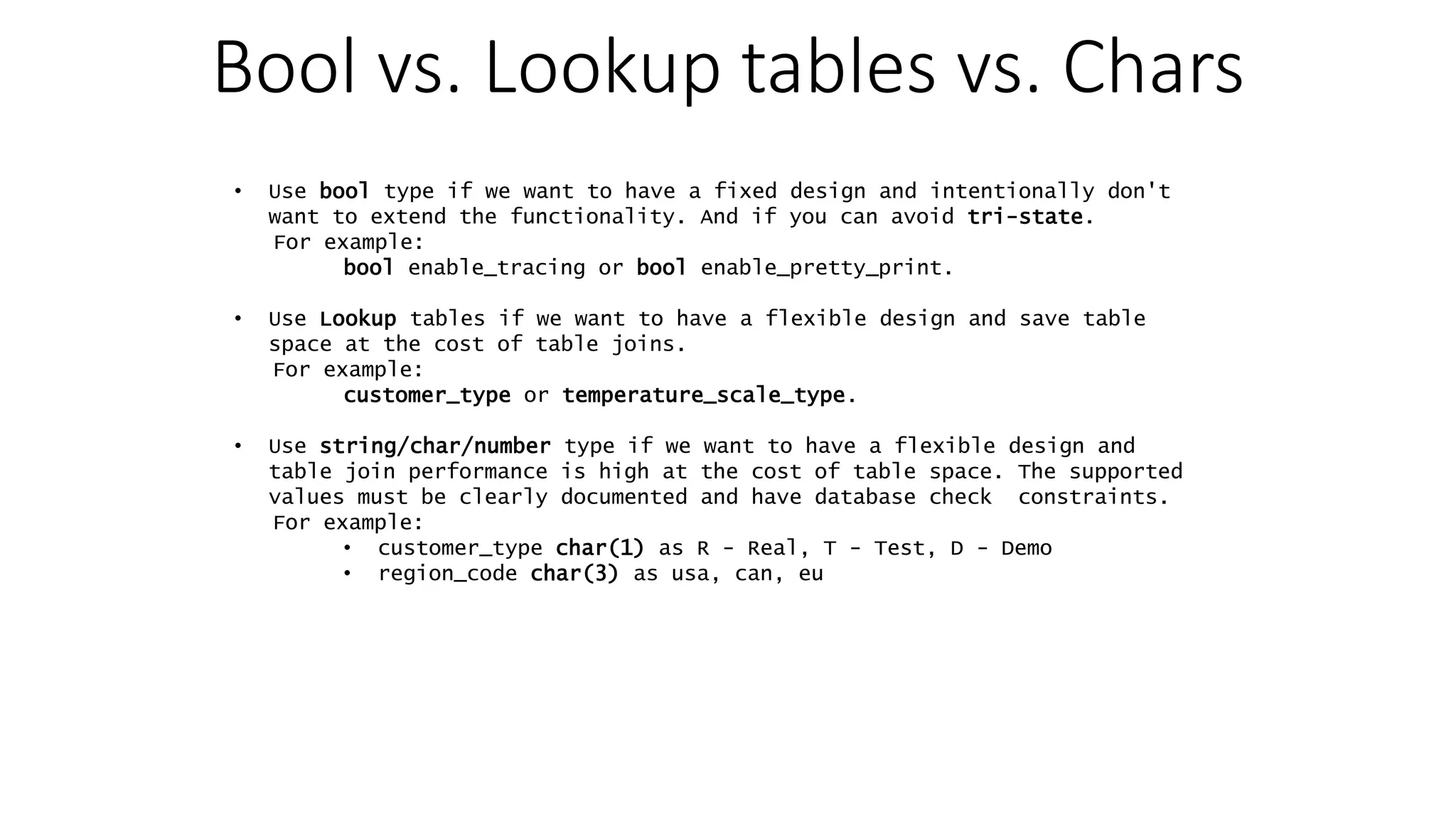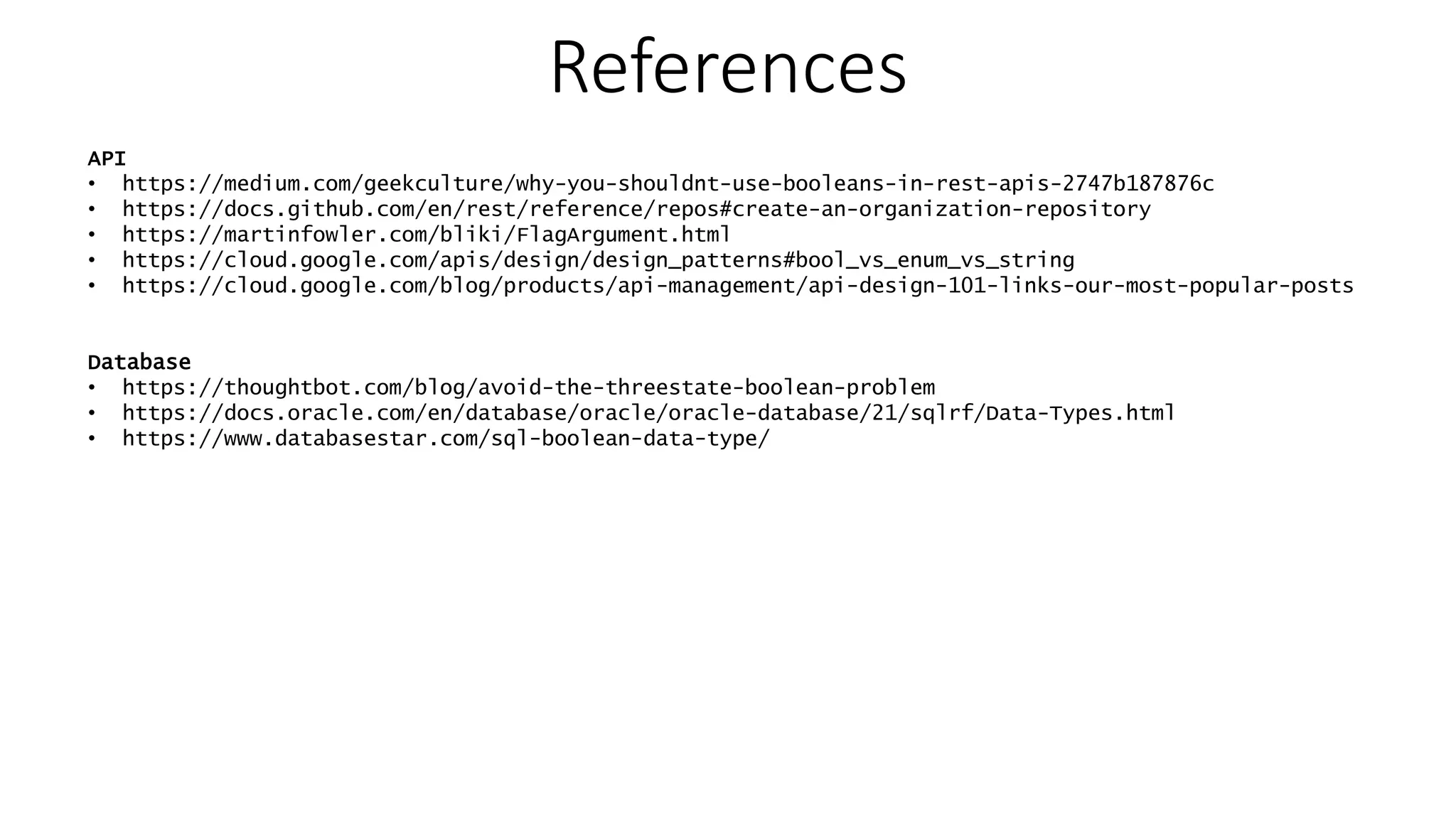This document discusses design considerations for using Boolean values in APIs, programming languages, and databases. It covers challenges like extensibility, domain clarity, and maintainability. Examples show how enums can be more flexible than Booleans and avoid issues like flag arguments. The document also discusses database equivalents to Booleans and best practices for different data types.
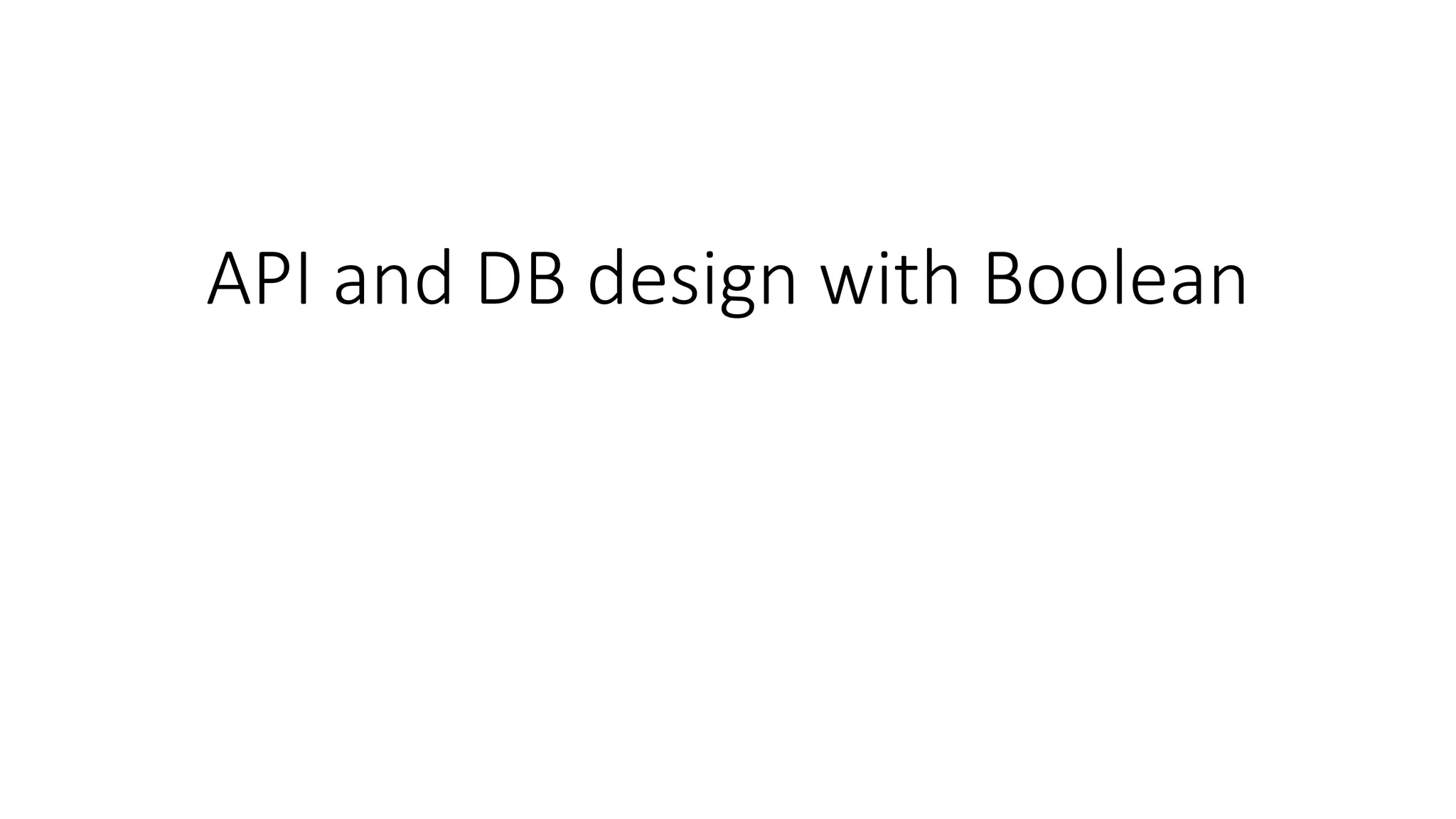
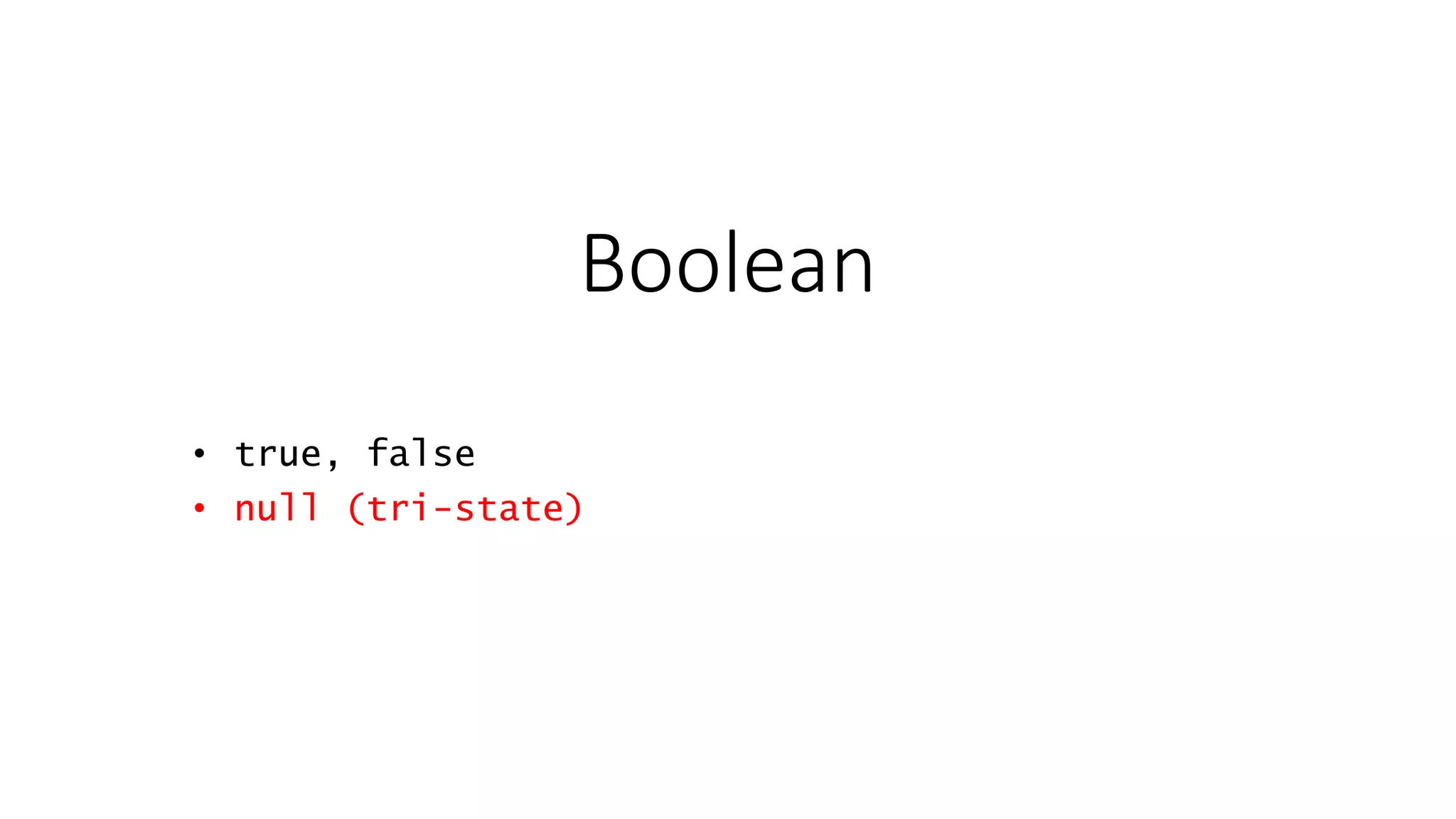
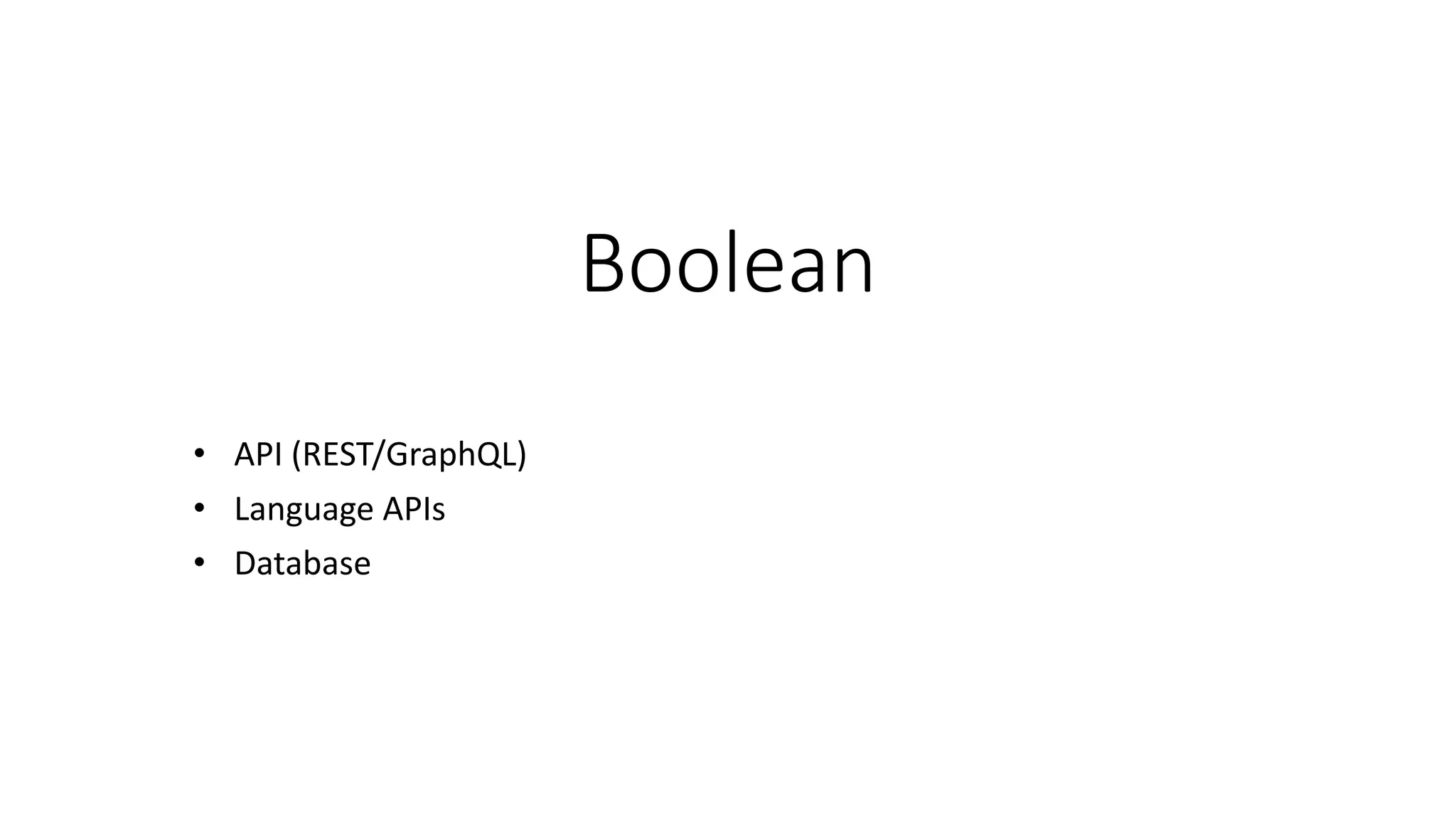
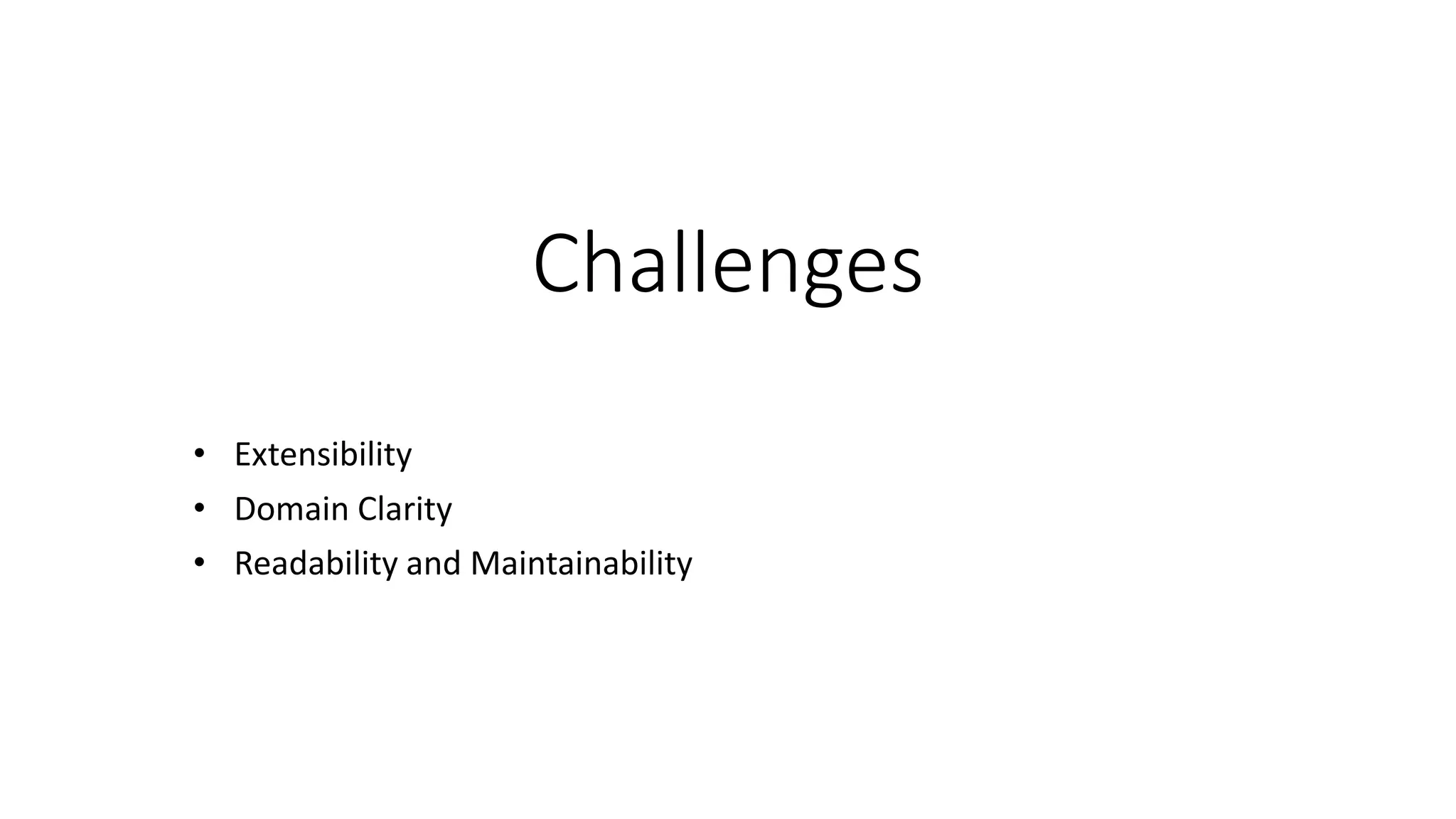
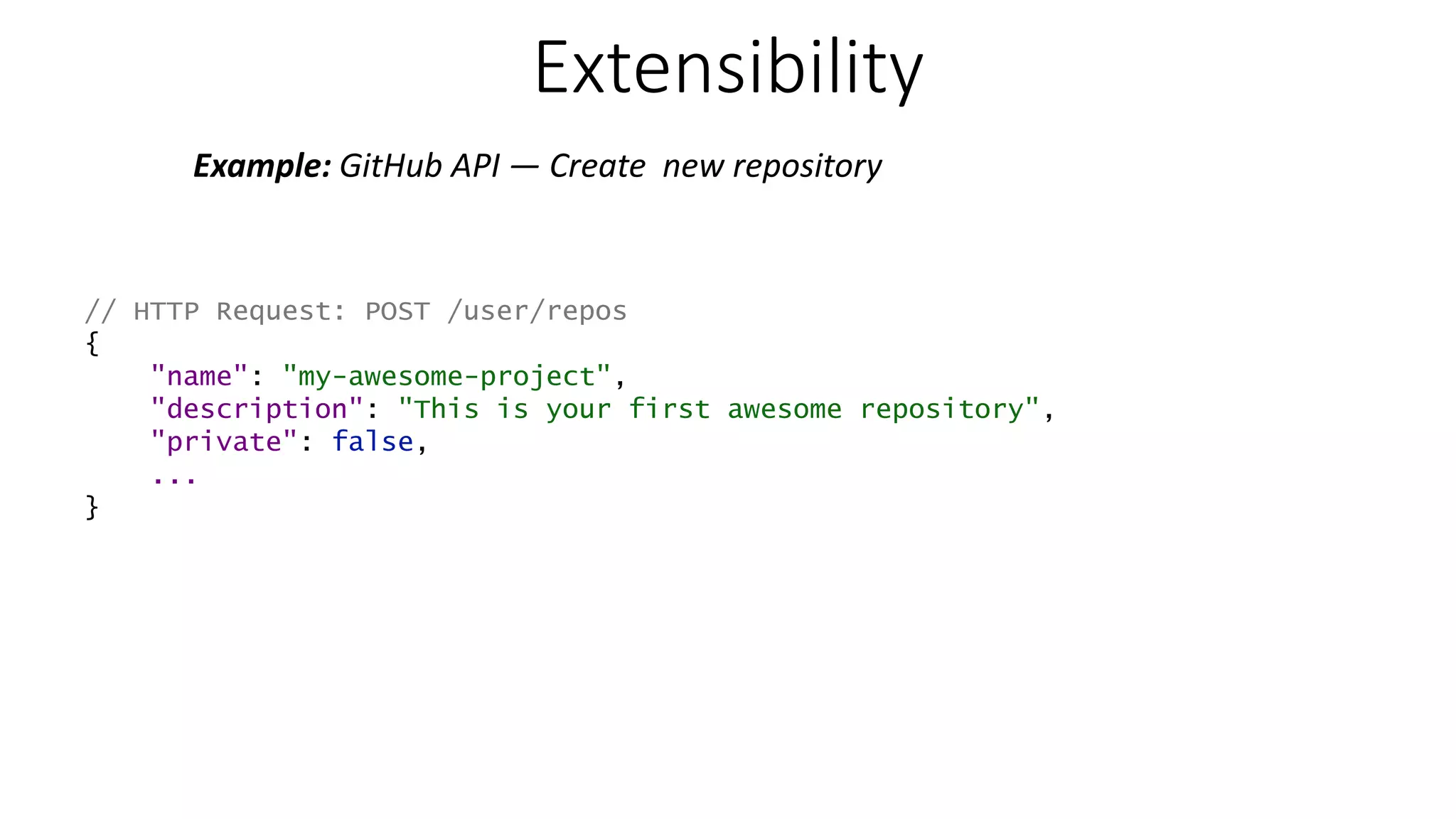
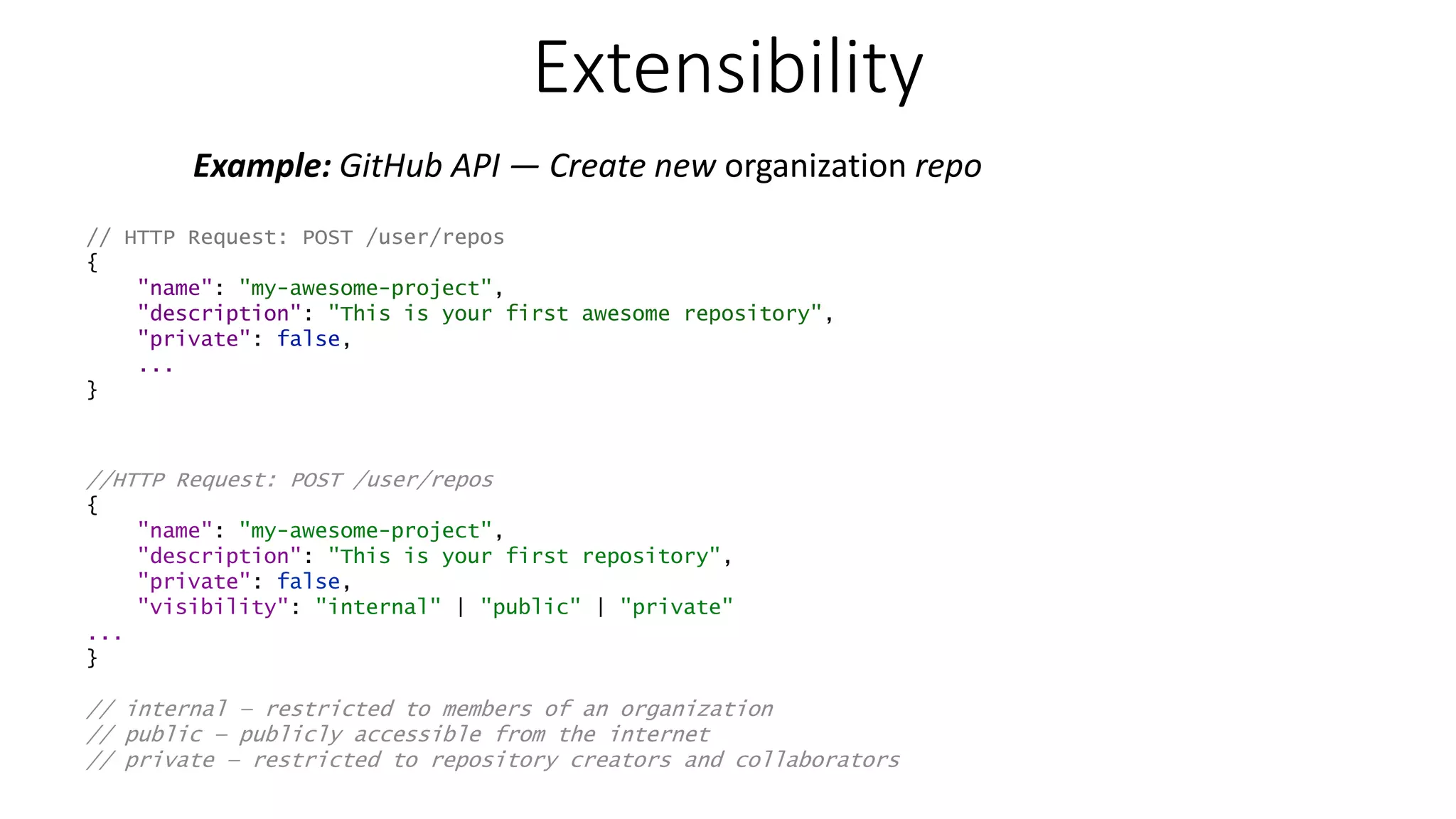
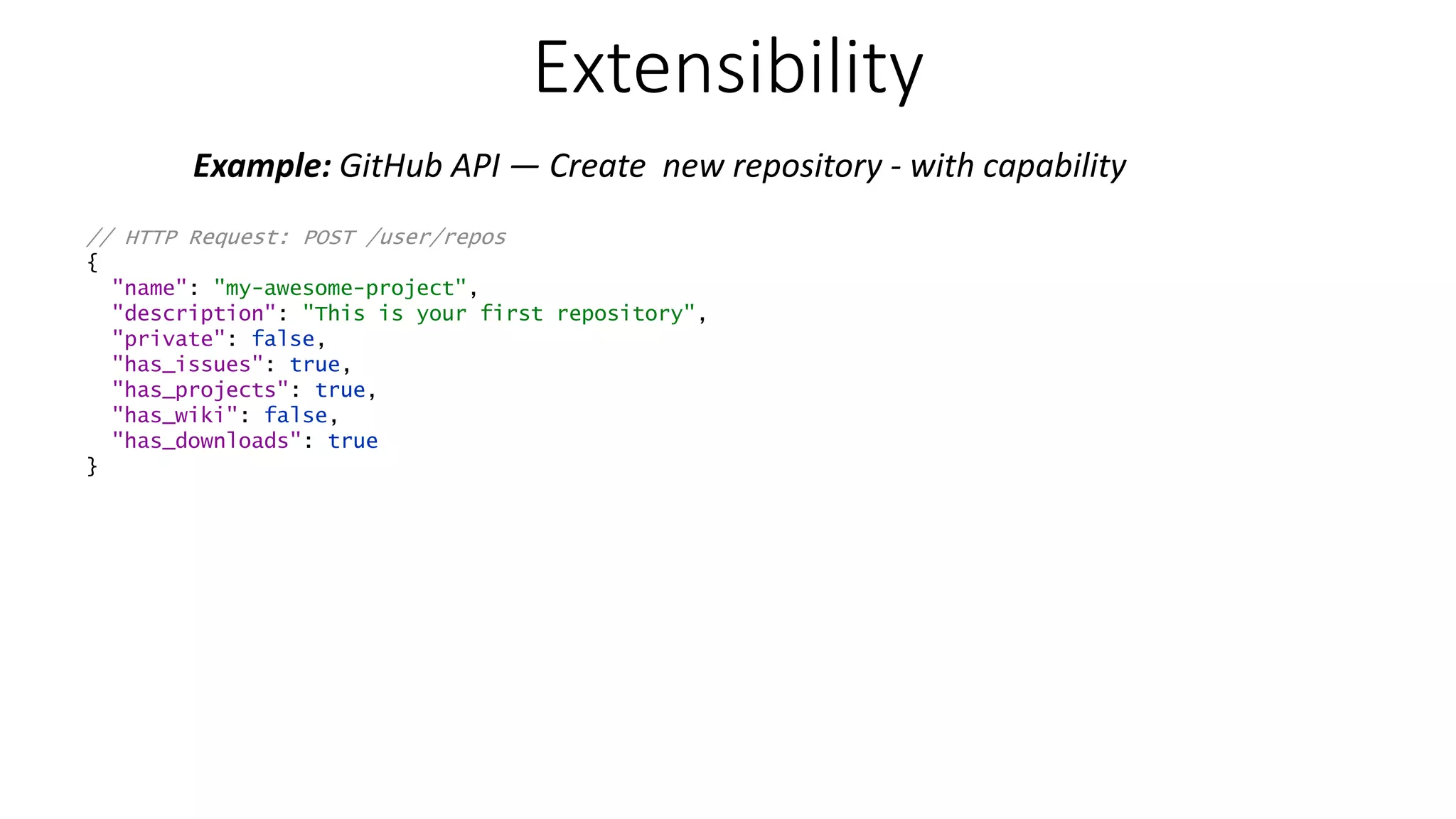
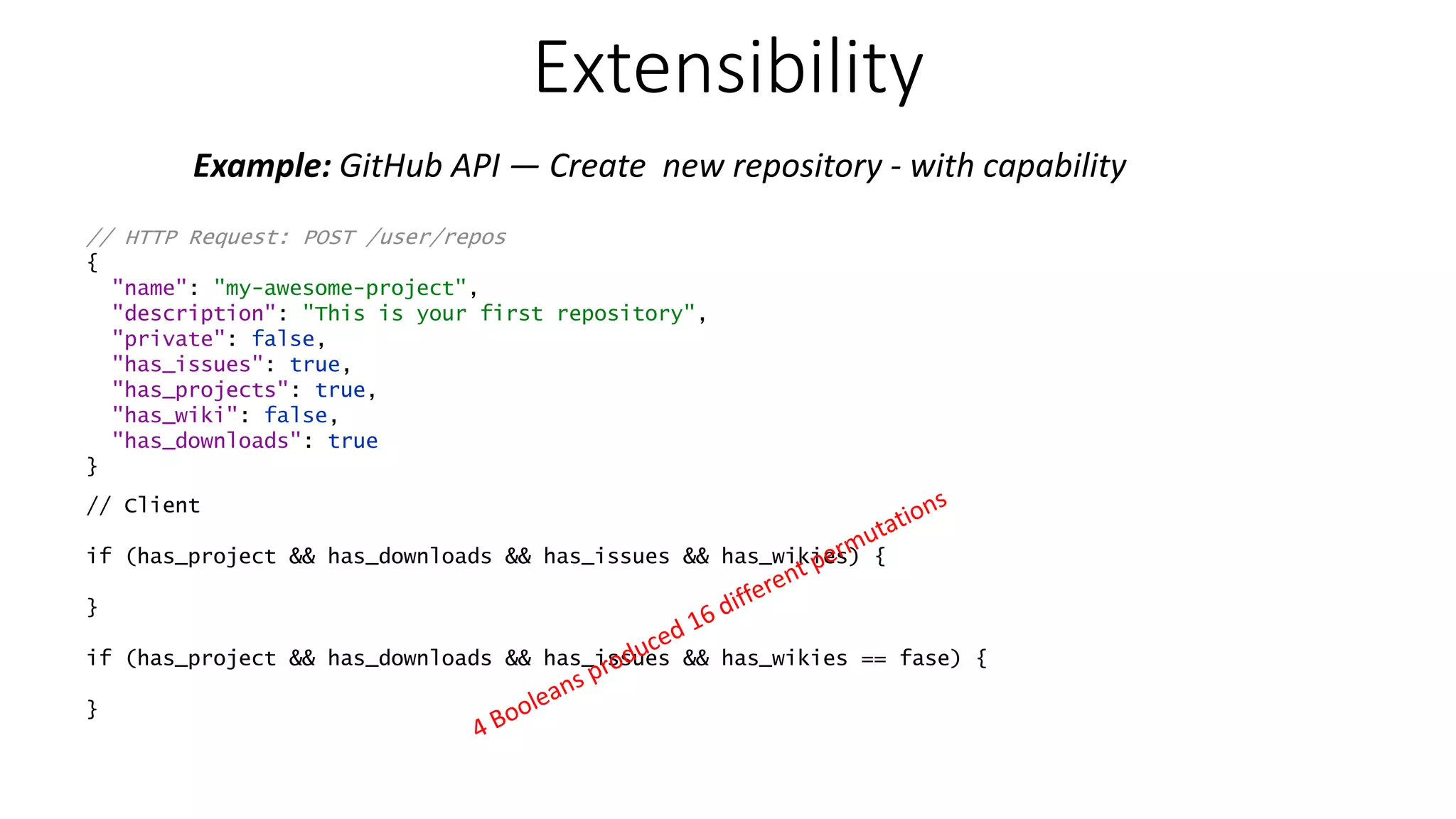
![Extensibility Example: GitHub API — Create new repository - with capability // HTTP Request: POST /user/repos { "name": "my-awesome-project", "description": "This is your first repository", "private": false, "has_issues": true, "has_projects": true, "has_wiki": false, "has_downloads": true } // HTTP Request: POST /user/repos { "name": "my-awesome-project", "description": "This is your first repository", "private": false, "repo_capabilities": ["has_issues", "has_projects", "has_downloads"] }](https://image.slidesharecdn.com/api-db-booleans-220321225003/75/API-and-DB-design-with-Boolean-9-2048.jpg)
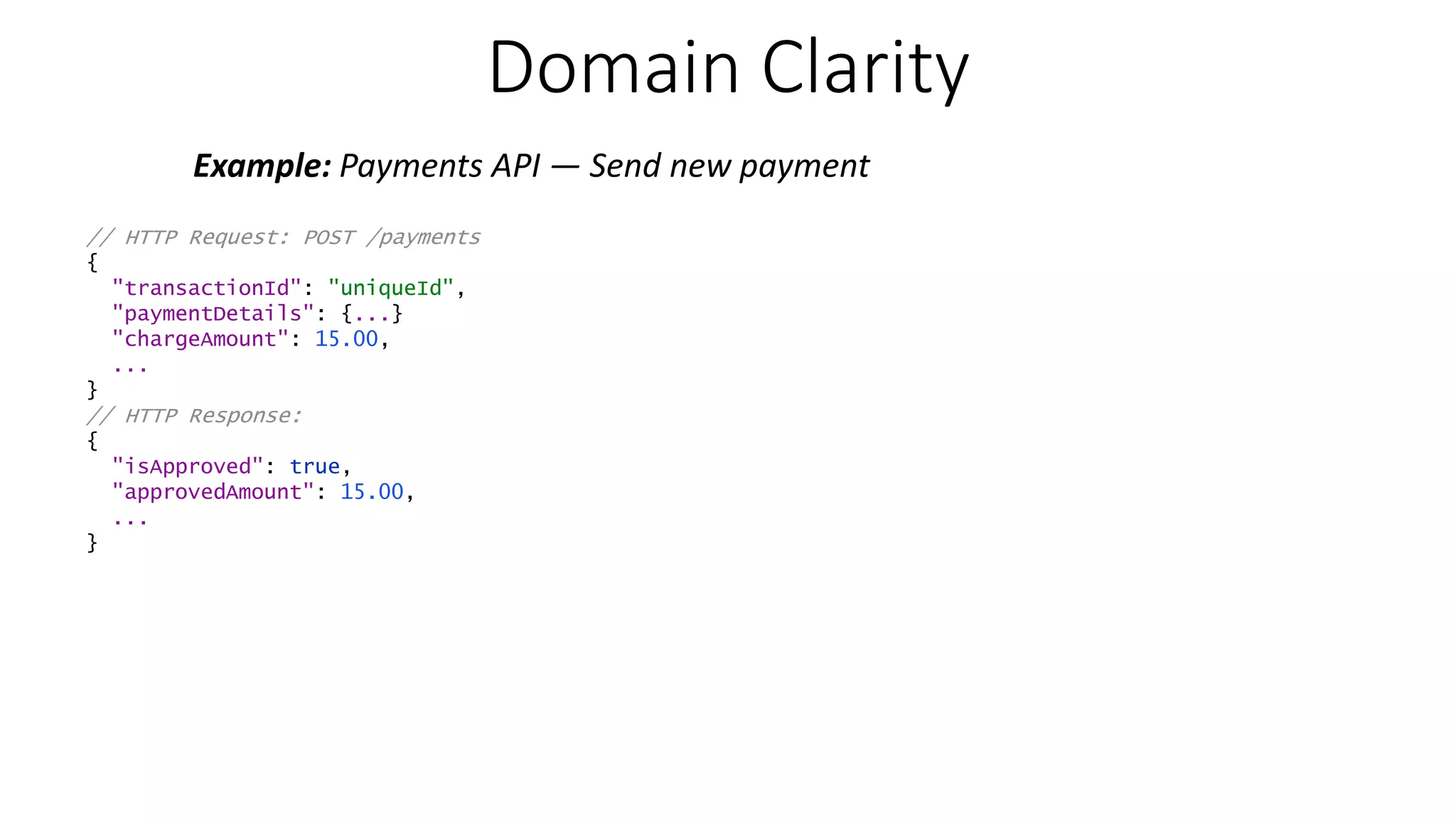
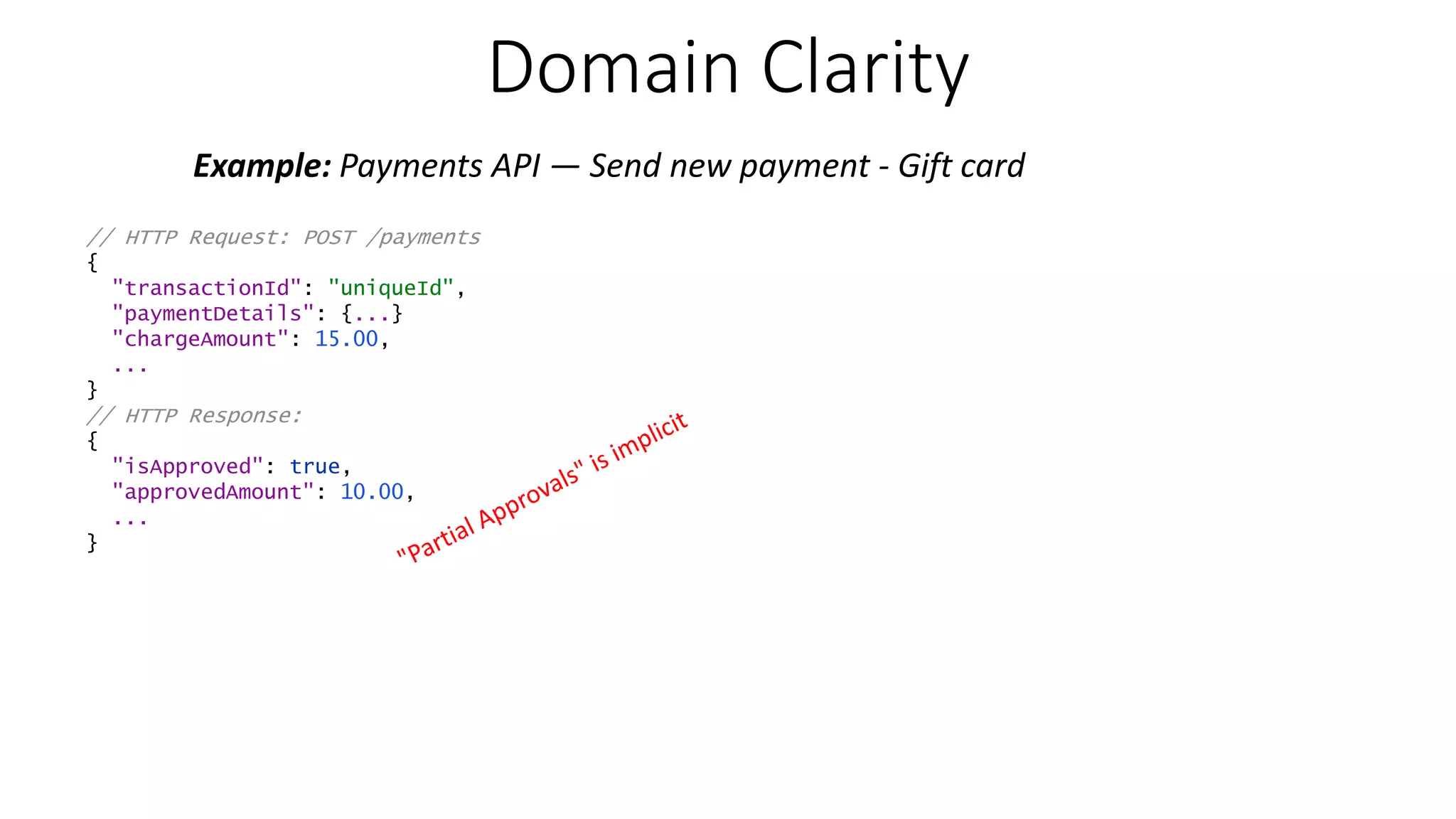
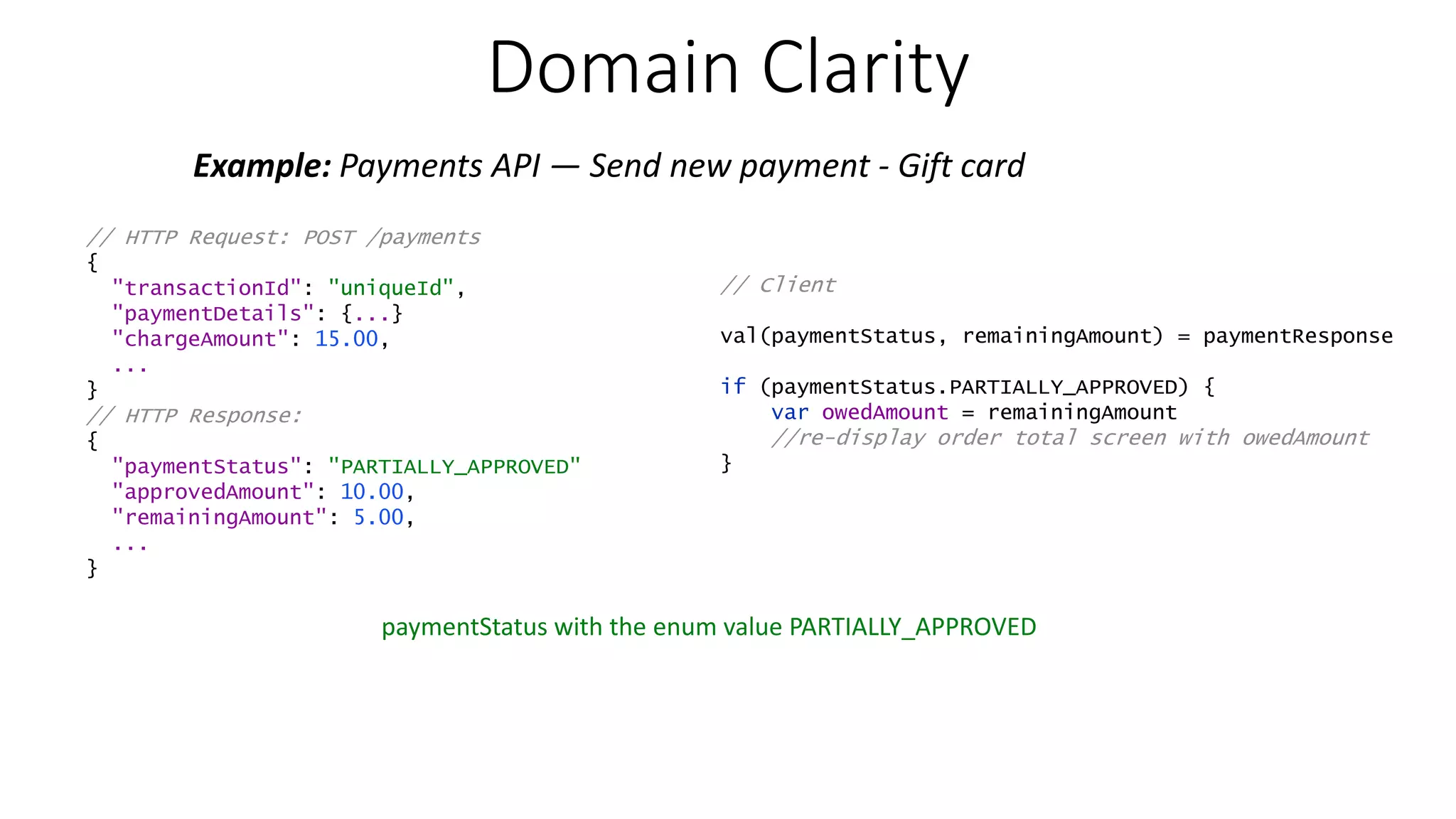
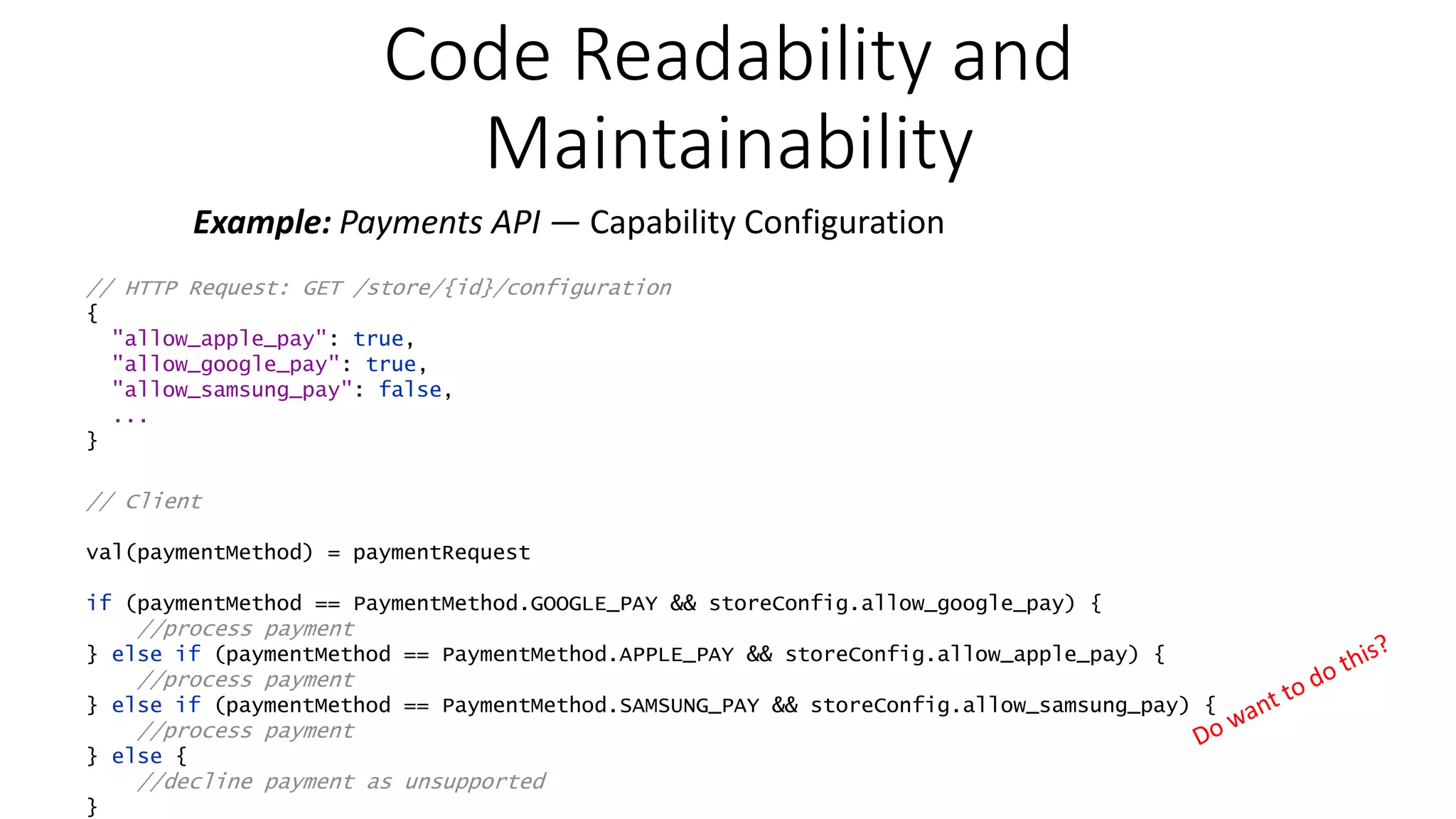
![Code Readability and Maintainability Example: Payments API — Capability Configuration // HTTP Request: GET /store/{id}/configuration { "allowedPaymentMethods": ["GOOGLE_PAY", "APPLE_PAY"], ... } // Client val(paymentMethod) = paymentRequest if (paymentMethod in storeConfig.allowedPaymentMethods) { //process payment } else { //decline payment as unsupported }](https://image.slidesharecdn.com/api-db-booleans-220321225003/75/API-and-DB-design-with-Boolean-14-2048.jpg)
